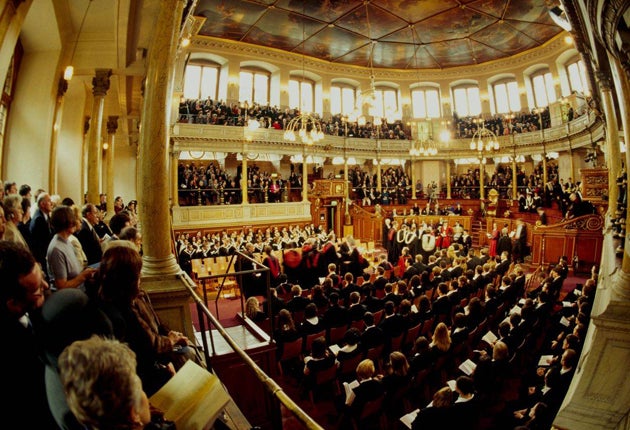English universities on course to become most expensive in world

Students in England will be paying more for a public university degree course than those anywhere else in the world if fees rise to £5,000 a year, according to research published today.
The inquiry into student finance headed by the former BP boss Lord Browne, which reports in less than two weeks, is expected to recommend moving towards a market in university fees – which would mean doubling the present levy to £7,000 a year.
Even if a more modest rise to £5,000 is recommended, English universities would still have the highest fees, according to the research based on figures compiled by the Organisation for Economic Co-operation and Development (OECD).
Figures show that Iceland currently has the highest average fee for a public degree course: £4,072. In second place is the United States with £3,572 a year (although students at private universities pay a lot more on average, £13,877). Currently, only these two countries and Norway charge more than England. Six of the 22 developed nations the OECD surveyed do not charge any fees at all.
England currently charges £3,240 a year compared with an average for the table of £1,427.
Lord Browne's committee is widely expected to allow a handful of the country's most selective universities – most likely Oxford, Cambridge, University College London and Imperial College – to charge above the increase he recommends provided they give a cast-iron guarantee that bursaries will exempt disadvantaged students from forking out the higher fee.
It is also expected to recommend interest charges on repaying loans and that high-earning graduates should repay more through the tax system.
However, the succession of Ed Miliband to the leadership of the Labour Party is likely to strengthen opposition amongst MPs to higher charges.
Labour was responsible for introducing top-up fees in 2006 but Mr Miliband is in favour of a U-turn – scrapping fees and introducing a graduate tax instead.
Liberal Democrat MPs have been given permission to abstain in any Commons vote on fees under the agreement reached with the Conservatives on forming the Coalition.
However, 56 of their 58 MPs signed a pledge to vote against any increase in fees during the election campaign and leaders of the National Union of Students, who drew up the pledge, are confident that many backbenchers will vote against when it comes to a Commons vote.
The Coalition Government is likely to delay its formal response to the Browne committee's recommendations – due to be announced in the week beginning 11 October – until after the Comprehensive Spending Review the following week.
"England has much to be proud of when it comes to higher education," said Sally Hunt, general secretary of the University and College Union. "However, we do not want to be the most expensive country in the world for domestic students to do a degree.
"Students have been contributing more and more to the cost of a degree over recent years and now is the time to explore other options.
"If the forthcoming review of university funding by Lord Browne just lists the way to squeeze more money out of students and their families then it will have spectacularly failed its remit."
The priciest places to go to university (all figures per year)
£4,702 Iceland
£3,752 USA
£3,313 Norway
£3,070 England
£2,978 South Korea
£2,798 Japan
£2,548 Australia
£2,332 Canada
£1,726 New Zealand
£1,108 Netherlands
Join our commenting forum
Join thought-provoking conversations, follow other Independent readers and see their replies
Comments
Bookmark popover
Removed from bookmarks